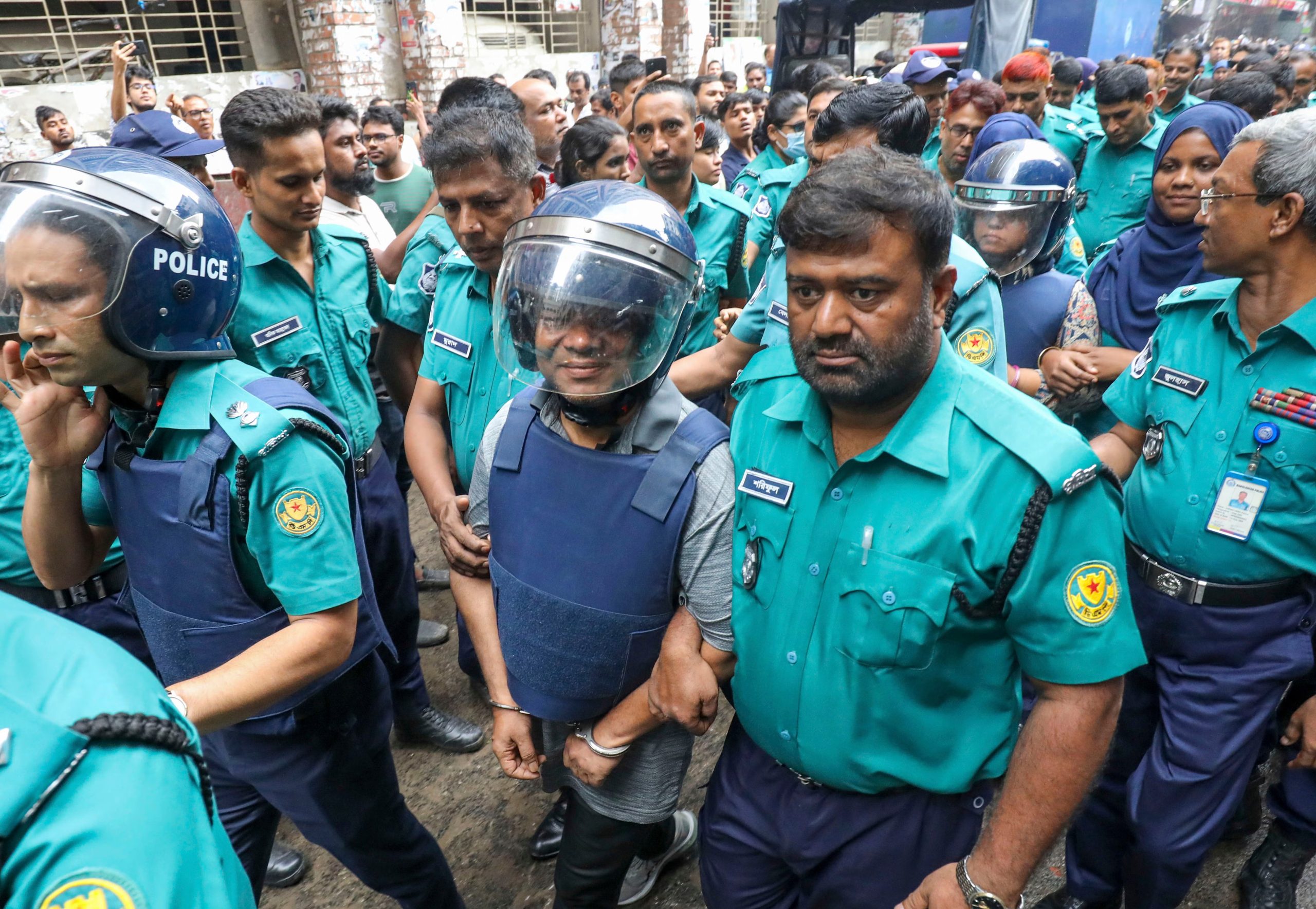DHAKA, Feb 17: Authorities in Bangladesh have detained 41 former police officers from a group of 1,059 ex-officers accused of perpetrating violence during the 2024 student-led protests that ultimately resulted in the removal of Prime Minister Sheikh Hasina, according to officials and media outlets on Monday.
Hasina, the leader of the Awami League, resigned and fled to India on August 5 of last year after student protests against discriminatory quotas evolved into a larger movement, ending her 16-year rule. The protests that occurred between July and August resulted in approximately 1,400 fatalities.
The prominent Prothom Alo newspaper reported, citing sources from police headquarters (PHQ), that surviving victims or the families of deceased victims have filed hundreds of cases against the 1,059 officials from the primary law enforcement agency.
Thus far, law enforcement has apprehended 41 former officers.
The PHQ mentioned that among those arrested are two former inspectors general of police, Chowdhury Abdullah Al Mamun and AKN Shahidul Haque, as well as former police commissioners from Dhaka and the southeastern port city of Chattogram—Mohammad Asaduzzaan and Mian Saiful Islam.
Excluding Haq, these officers were still in service when Hasina departed the nation.
The most significant number of cases, totaling 174, have been filed against Harunur Rashid, a former additional commissioner of the Dhaka Metropolitan Police, who is currently on the run.
Arrested former IGP Al Mamun faces allegations in 159 cases.
Officials noted that several senior officers, including additional police chiefs and a police commissioner, are evading capture, with some believed to have escaped the country.
Bangladesh is presently overseen by an interim government headed by Muhammad Yunus, who was appointed Chief Advisor by the Anti-Discrimination Students Movement.
The current Inspector General of Police, Baharul Alam, previously stated that the cases related to the uprising in July and August would be investigated by committees led by senior police officers across the eight police ranges in Bangladesh.
The UN human rights office recently released a fact-finding report regarding the violence in Bangladesh in 2024, examining the role of police and security forces, describing their actions as resulting in “systematic and widespread extrajudicial killings as part of a coordinated strategy of repression.”
The Office of the High Commissioner for Human Rights (OHCHR) reported that the majority of those killed during the uprising were shot by Bangladesh’s security forces.
“Based on the information available, OHCHR has reasonable grounds to believe that police and paramilitary state security forces used force in violation of rights against protesters, including systematic and widespread extrajudicial killings as part of a coordinated repression strategy,” the report stated.
It further noted that security forces attempted to disrupt “yet peaceful assemblies with ‘disproportionate force’, particularly utilizing military rifles and shotguns loaded with lethal metal pellets,” and in certain instances, “deliberately killed or injured defenseless protesters by shooting them at close range.” (PTI)


Leave a Reply